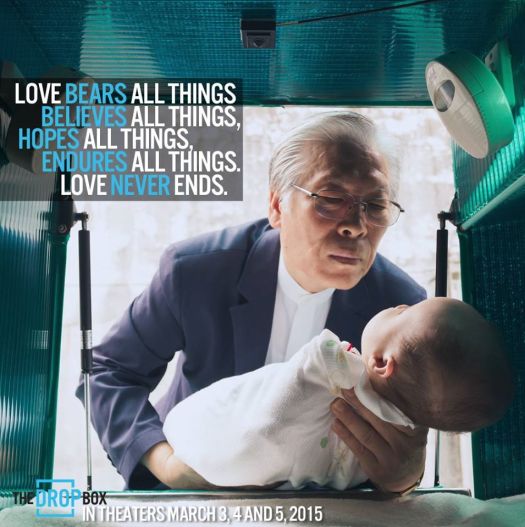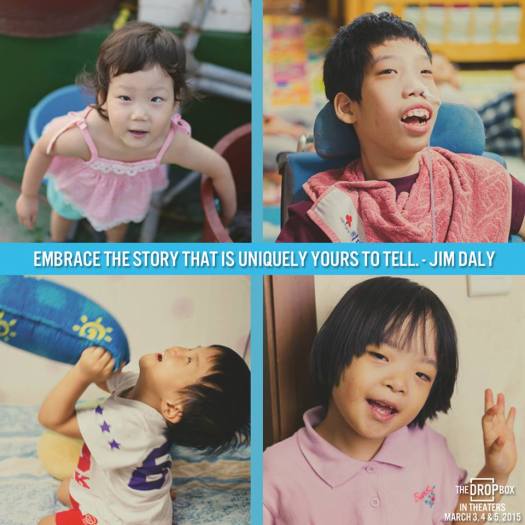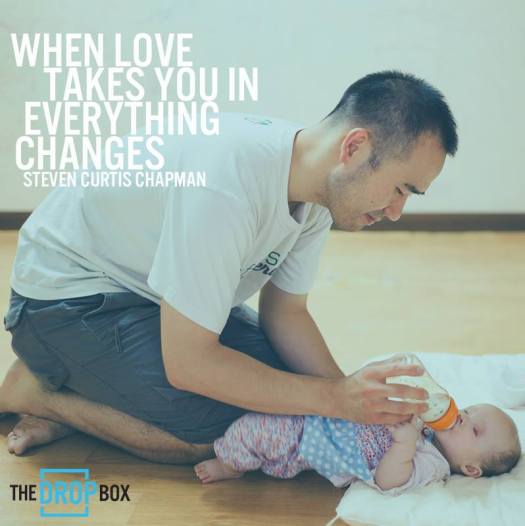It’s true. The topics of orphan care and adoption are incredibly complex.
Anyone that says otherwise are naive or selling something. It’s complicated on their own and even more complicated in the same sentence. And even more complicated when you engage it on local, national, and international level. They might be undergirded by certain same principles but they can (and should) look different on the ground. There’s no one simple, generic solution. And whenever solutions are presented, eventually – surely enough – loopholes are found to be exploited or what’s relevant in one context and culture may not be as relevant – or even dangerous – in another context.
Adoption – locally and globally – are fraught with complexities and even justice issues. It’s sad but that is sometimes the case when people [in this case, adoptees and especially young children/babies] are seen as commodities – particularly in international adoption. When we speak about adoption or orphan care, we must begin with two overarching principles for us as followers of Christ: 1) God cares for children and thus, 2) Children must matter to us – their well being, their safety, and their future. But often times, children themselves are often what’s most forgotten in these conversations, complexities, and politics.
Having said that – and while others may disagree with me, my conviction about international adoption is that we must seek to keep children with their biological families if at all possible – if children are in a safe environment. This needs to be the pervasive ethic so that economics isn’t the ruling factor – especially with international adoption.
Now, having said that, we know that we don’t always live in a society and culture of ideals and thus, the tension. This is why orphan care and adoption require much prayer, discernment and critical thinking.
The Drop Box is a powerful documentary coming to theaters in March of 2015.
The film tells the story of Lee Jong-Rak, a pastor in Seoul, South Korea, and his wife, who built a drop box at the front of his church as a safe location for babies who are otherwise abandoned on the streets. It has an inspiring message for all of us, challenging us to consider what role we might play in advocating for orphans and supporting adoptive families.
What I deeply appreciate about The Drop Box film (I saw it couple months ago) is that not only does it acknowledge the complexity of these issues, it reminds us – beautifully and poignantly – that behind statistics and banter of issues – are real babies and infants that are created in the image of God. This needs to be a constant reminder lest we think this is just about policies, politics, and institutional systems. Life matters. Babies matter. Unborn babies. Infants matter. Children matter.
Left. Right. Liberal. Conservative. Whatever your adjective, all Christians should be for the sanctity of life – from womb to tomb.
And in a world and culture that tend to gravitate towards superhero figures, this is a beautiful reminder of the story of an ordinary person, Pastor Lee and his wife, and their willingness to live with a commitment to compassion and obedience to Christ – even at deep personal costs. Having been a pastor for couple years in Korea in the ’90s, I can tell you that there’s a certain allure of big and glamorous churches led by well known and glamorous pastors. And you don’t achieve that by caring for orphans abandoned on the streets.
Why is this film so powerful?
Because it speaks to the value and beauty of human life – every single human life including babies and toddlers that make up most of the orphans in Pastor Lee’s care: “disabled children.” In every part of the world, kids with physical disabilities are seen and judged instantly as second-class and disposable. This is why in many western countries, some sources cite 80-92% of unborn babies that are detected with Down Syndrome are aborted.
Let that sink in.
This is why this film matters.
It acknowledges the complexities.
It acknowledges cultural tensions and apathy.
It acknowledges the dangers and ethics of having a drop box enabling mothers and fathers to drop off their babies.
But however complicated, we can’t just talk ethics, complexities and politics…and ignore the facts of aborted unborn babies and unwanted babies
This is why this film matters.
Because it declares that every life matters – even and especially the unwanted and “disposable”.
This is a glimpse of the Gospel.
This is a glimpse of the Kingdom.
This is a glimpse of the Gospel that declares that God sees us, meets us, and adopts us as sons and daughters.
Thank you, Pastor Lee. Thank you, Mrs. Lee.
목사님 – 사모님, 감사합니다.





I agree with you that the first approach should be to maintain the family of origin. When that is not possible it is to breathe grace into challenging circumstances as a reflection of God’s love for every person and the justice of His kingdom. As a legal group we get involved in these circumstances frequently. I’ll certainly watch the movie. Thanks.
100,000 modern day orphans in U.S. Foster care awaiting adoptive families. 300,000 Christian churches with a mandate to care for orphans. Adoption from foster care costs virtually nothing. Why still orphans in the US?
check out: http://Icareaboutorphans.org .
Children in foster care aren’t orphans.
The more than 100,000 Children in foster care with no legal permanent patent except the state that has custody of them are modern day, legal orphans indeed. They belong no where & with no one on a permanent basis. Their birth parents were either unable or unwilling to provide s safe family home and now they wait for a permanent family, hoping to get one before they becomes adults with no place to go for holidays & with no one to witness their milestones in life. For kids who enter foster care, the goal for everyone involved is timely and safe reunification with birth family. Children in that stage aren’t orphans but those are not the children for whom we seek permanent adoptive families. It’s the ones for whom that is not possible. They tend to be teens, sibling groups & kids with special needs and they need families!! http://icareboutorphans.org
We absolutely are orphans. How can the definition of a child that has permanently lost one or both parents from neglect or abandonment be more succinct than “orphan”? I was a orphan from the second my mother chose to walk out on my brother and I – to leave us to die in our own 1 and 2 year old squalor – to the moment three and a half years later when our new parents picked up from “the orphanage”. We had no permanent home, no one called us theirs, hand-me-downs were communal, nothing belonged to you including the dollies your took to bed at night (imagine a little girl bonding with a baby doll and having to leave that orphanage and having to abandon that doll like her mom abandoned her – therapy is how you get over that), nothing was consistent or predictable even if it we were safe, fed and protected. I was an orphan. Not all children in state care are orphans, some have parents who are trying to get it together to ‘earn’ them back. But there are orphans in the US. And no matter if they are what you consider ‘real’ orphans or children living in foster care until they can be reunited with their families, every single one of those children still need you and others to respect their place and not parse words about the situation that they daily live out.
http://www.sbs.com.au/news/article/2014/02/11/opinion-divided-merits-south-korean-pastors-baby-box
As a Korean adoptee, I cannot bring myself to watch the movie. My personal opinion is that this baby box operation is illegal as it sidesteps requirements to properly register the child prior to relinquishment. The true issue is the stigmatization on unwed mothers. This has not changed much in the 33 years since I was adopted. Until this changes, children will continue to be abandoned or relinquished when what is really needed is support to these families and cultural change. I posted this article from last year so that both sides of this issue are heard. Admittedly, I haven’t seen the film, so I don’t know what is or isn’t addressed. I encourage you to follow #buildfamiliesnotboxes and to read the article about the work other organizations are doing and differing opinions. There has to be a better way to address this issue that recognizes that these babies will grow up and will want answers.
Thank you for sharing your lived experience rmlars. As an adoptive parent I think we must put aside our feelings and listen to you, the adoptee. You have made some very important points…namely that this drop box is illegal. Thus children who are dropped off do not retain any information about their history, which is their human right. I also see the need to change the Korean culture to be more supportive of unwed mothers. Although I do not believe it is Gods best plan for a family to be an unwed mother and her child, it is reality, and the Church should help then rather than perpetuate the “abandoning” of children in manners such as the drop box.
Thank you for sharing your comment. They are important in the conversation, indeed.
FWIW, I thought the documentary did a good job highlighting the criticisms and not simply glorifying the Drop Box. I appreciate this very much because the issues are indeed very complicated – for various reason including some you already mentioned.
But what I also heard loudly through the film is the simple elevation of life and sadly – particularly those deemed by larger culture (in this case, my homeland culture), as less valuable.
The issue of registration is covered in the movie. Pastor Lee does not like that these babies have no history. That being said, after finding many abandoned babies out in the cold, many with umbilical cords still attached, he determined that a live baby in a drop box was better than a dead baby left out in the cold. Many of his children – they are adopted by he and his wife – have special needs. Many will not have long lives or come back to ask about biological parents. They are tenderly loved and cared for and valued as a child of God.
My conviction about adoption is that we must seek to keep children SAFE. Sometimes that can happen with a child’s bio family, but OFTEN it can’t. A little known fact, which I am telling you as a lawyer familiar with the history of child welfare and the law, is that the phrase “family preservation” is code for valuing an adult’s right to privacy and autonomy OVER a child’s right to safety.
Reblogged this on A Noble Journey. and commented:
Oh my heart. I know the Lord is calling me to adoption.
I tried to see the movie tonight but it was sold out. I agree that this is a very complicated issue with no black and white answers. I also agree that the best thing for a child is to stay with their birth family whenever possible.
Having adopted a child from foster care I can tell you that it is not always possible even after the family has been given all opportunities and 2 years to try and reunify. I know there are children in the US that are legally free for adoption but most of those children are older, or large sibling sets or have many special needs that your average family is not capable or willing to take on. That is not to say those children should not be loved or adopted. I am just not sure what the answer is to help them. I do know of people who have tried for years to adopt from adoptuskids.org and never even received information back after they inquire. It maybe free but it is extremely frustrating to be ignored time and time again. My guess is the social workers are just overwhelmed or just don’t wish to have to bother with out of state adoptions.
After caring for the little girl we loved as a foster baby for 2 years and then having to drop her off at a halfway house and learning that the judge was most likely going to place her back with birth parents that were still very unstable my husband and I decided we just couldn’t do it anymore. In the end her parents ended up calling us and asking us if we would adopt her and still allow them to have some contact. So we ended up getting to adopt her and most likely kept her from a life of going in and out of foster care. I applaud the people who continue to foster year after year and child after child but until you have drop a screaming child off to a place you wouldn’t leave your dog at out of fear that they won’t be found alive when you are scheduled to pick them up you might want to reconsider who you chastise for not doing foster adoption.
My husband and I decided we could parent one more child and so we looked to Russia to do so. We did not want to risk having the child taken away like when we did foster care. We also learned that many children in Russia with Down syndrome are horribly treated in the orphanages. So we decided we were capable of parenting one of these children as I have a background in working with children with special needs.
Now some may question why we didn’t adopt one of the thousands of waiting children here in the US. We searched and searched the sites but could not find a child that had a mild enough special needs that we felt capable of taking care of. Our houses is not wheelchair accessible and we have no training caring for a medical fragile child. Also, all the other children on adoptuskids said the child needed to be the youngest and we had our daughter adopted from foster care that was only 4. Anyway, the point being that we did look at the US first but we could not find a child that seemed to fit our family and we were not being overly picky but there are rules put in place as safeguards to help the adoption process work. Even though we have had our little girl since 2 months old she still has a lot of issues that we have all had to work through. So people need to be prepared for this.
We did feel confident in caring for a child with Down syndrome as their only special need. So off to Russia we flew. We met a sweet 6 year old girl. She was very bright and living in an institution where no one had ever visited her before we arrived. To adopt from Russia you have to visit there 3 times. First to meet the child, second for court and then there is a 30 day wait to make sure no one contest the adoption. We were awaiting a court date when Russia banned all Americans from adopting. It is a complicated political mess that some would have you believe is only because of abuse suffered by children who were adopted from Russia to the US. While there have been cases of children being harmed, rehomed and killed this is not the real reason Russia banned adoptions. That is not to say that this is acceptable but there were other political reasons behind the ban. More children die and are abused in Russian orphanages each year than in US adoptive homes and many more children thrive here than those who were abused. Again, not saying, oopsie no biggy that 20 kids died in American in 20 years, saying that the safety of Russian children was not Putin’s top priority in the ban. Otherwise he might actually care about what happens to them in Russian orphanages and in Russian adopted homes. The fact remains that it was extremely cruel to allow families to meet children and for these children to lose the chance of a family once again.
There were 300 children who met families at the time of the ban. Out of those 300 only 40 remain unadopted yet Russia still is not willing to negotiate their cases even though it has been over 2 years and the chances of them ever being adopted are slim to none.
There have been some good things that have come out of the ban. There has been much publicity in Russia and organizations that help families stay together have been receiving more support. The Russian citizens are being made aware of the conditions in their orphanages. Children with special needs are being adopted when 2 years ago it would have been unheard of. Organizations like Downside Up in Russia are helping families keep their children with Down syndrome and even helping a few families go back to the orphanages and get their children back.
My heart still aches for the little girl I consider my daughter. She will most likely grow up in the institution and then be transferred at age 18 to a horrible place with no stimulation. Right now she is one of the lucky ones that actually gets to attend school. That is not usual for a child with Down syndrome in a Russian orphanage. There are some orphanages where they tie them to the crib all day and the children bang their heads against the wall just to have some stimulation.
So I guess my point is ALL adoption is complicated. Don’t judge others for where they choose to adopt. If you feel passionate about a certain place be it the US foster care system, Korea, Haiti, Ukraine, Russia or wherever go make a difference in that place. The thing that gripes me the most are people who sit around criticizing others for how and where they are trying to help. These children are all God’s children. They deserve families. They deserve first families first whenever possible but there will be times that their first families are either incapable or not willing to parent them.
We have to be the voice for those who have none. It should always been done legally and ethically but there will always be times that it needs to be done. I have been to orphanages and I have seen what it does to a child. No child should ever have to grow up that way.